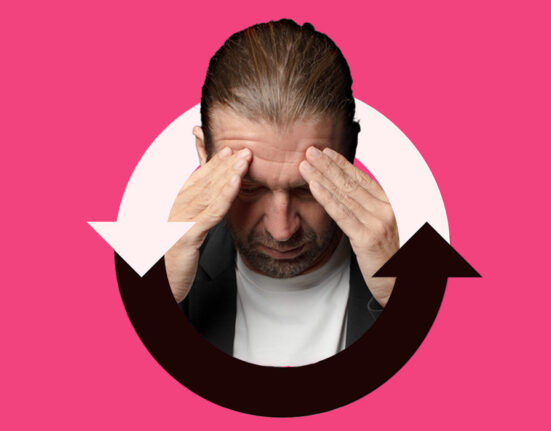Self-Concept as defined is the totality of beliefs, preferences, opinions and attitudes organized in a systematic manner, towards one’s personal existence. In other words, it is how we evaluate ourselves which determines how we think, behave and act out our various life roles.
Tiedemann (2000) indicated that parents’ stereotypes and expectations for their children impact children’s understandings of themselves by approximately age 3. Others suggest that self-concept develops later, around age 7 or 8 years, as children are developmentally prepared to begin interpreting their own feelings, abilities and interpretations of feedback they receive from parents, teachers and peers about themselves. Psychologists have been grappling with the construct of self concept for over a century now – right from Sigmund Freud, Alfred Adler, Cattell, Fromm, Jung, Maslow and Sullivan to name a few. Ruth C Wylie has documented extensive work on Self Concept in 1961 and studied it in relation to socio-economic status, racial and ethnic status, achievement, ability, attractiveness, gender, etc. Guardo and Beebe as early as 1968 tried to operationalize the emergence of ‘sense of self’ for which they said the main parameters were:
1. The child recognises s/he is a singular individual
2. S/he senses his/her ‘humanness’ and the qualities which differ from other species
3. S/he identifies his/her gender and that it is different from other gender
4. S/he perceives the self as continuous entity from past self, through the present self to the future self.
Despite differing opinions about the onset of self-concept development, researchers agree on the importance of self-concept influencing people’s behaviours and cognitive and emotional outcomes including (but not limited to) academic and work achievement, levels of happiness, anxiety, social integration, self-esteem and life-satisfaction.
Your self-concept is how you view yourself. It is important because how you view yourself, determines how you will experience life. Many people assume that, if you have good life experiences (happy relationships, money, fame, success, etc.) you can have good self concept. Research however, has consistently shown that the two are not related causally and the converse may be true – if you see yourself in a positive and healthy light, your life experiences will be positive and healthy. Even in the face of adversity, one will have a more positive way to deal with challenges.
Aruna at 16 years of age was a high achiever. She had excelled in her academics, sports and extracurricular activities. She was very focused in whatever activity she took up. Two years later, she got into the wrong company at school and under peer pressure got introduced to and later addicted to drugs.
Lokesh always appeared highly confident about himself. He had all the answers and was a whiz at quiz. He had a good physique and a good sportsperson. He was voted the most popular boy in school. In Std. 10 he was suspended from the school for bullying.
Susie was a homemaker with 2 model children. She was meticulous about keeping her home clean, she drove the children to school and all their classes, she helped at their school for events, organised charity functions and was an impeccable hostess for her husband’s office parties. At 35years she developed depression when her children and husband no longer seemed to need her services and she felt her life was empty and meaningless.
.jpg)
In all these 3 scenarios, the person appears initially to have a strong self concept and it seems difficult to believe that such a person’s self concept would crumble or be dysfunctional. If you look closely, it is apparent in the above examples that many a times, the confident, competent and high achieving person’s self concept is built on external factors or a false sense of prestige or an identity projected by others. So when there is a shift in external factors the self concept changes. But if one has a positive, genuine and intrinsic self concept it will be resilient to external factors and does not shift with situations.
When based on external factors, self-concept can be wavering and vulnerable to threats, e.g. if it’s obtained from an attractive physical appearance, being popular or successful at work, one does feel on top of the world. However with any changes in these external factors one can be disillusioned or disappointed and the positive self-concept may collapse.
Self-concept (also closely associated with self-construction, self-identity, self-perspective or self-structure) is a collection of beliefs about oneself. To say so, self-concept deals with the answer to “Who am I?”
Self-concept is made up of one’s self-schemas and interacts with self-esteem, self-knowledge, and the social self to form the concept of selfhood. It includes the past, present, and future selves, where future self (or possible selves) represent individuals’ ideas of what they might become, what they would like to become, or what they are afraid of becoming. Possible selves may function as incentives for certain behavior.
The perception people possess of their past and future selves relate to their perception of current selves. The temporal self-appraisal theory argues, that people can maintain a positive self-evaluation by distancing themselves from their negative self and paying more attention to their positive one. In addition, such people have a tendency to perceive the present self favourably (e.g. “I’m better than I used to be”) and the future self even more positively (e.g. “I will be better than I am now”).
Self-concept is different from self-awareness and self-esteem: self-concept is a cognitive or descriptive component of one’s self along with beliefs while self-esteem is evaluative and opinionated.
How to develop a positive self-concept?
• Know yourself
• Have a positive attitude towards yourself
• Be true to yourself in thoughts, words and deeds
Today, we live in an increasingly complex and multifaceted world. In order to meet the challenges we now face, it is more important than ever to build a positive self concept and the foundation for this consists of self-knowledge, self-love and self-confidence.
A healthy self-concept is not just having high self-esteem but more to it. Maintaining high self-esteem is important, but it is not all, since self-esteem is largely based on your ‘feelings’ of self-worth and appreciation. Self concept consists of your self-image, either positive or negative, at a cognitive and an emotional level.
Therefore, a healthy self-concept is a construct which must be derived from within and have both, cognitive and belief/feeling component. Instead of being dependent upon validation from external sources, or the wavering opinions of others, self-concept must result from self-reflection, self-analysis and self-acceptance.
.jpg)
1. Make an inventory of your strengths, weakness, talents, values and potentials. Be honest with yourself in this appraisal. Be true to yourself.
2. Love and honour yourself as a worthy person, knowing that you have immense potential. Remember, this potential to be realised, needs hard work and opportunity and some amount of luck. Even when you are not able to fully utilise or exploit your potential, you still have something of immeasurable value to cherish.
3. Take responsibility for your choices and actions. Be aware of its effects on others. When you balance your own needs with those of others, the resulting decisions will be ecologically sound. It will be a win-win situation and not only will it validate your self-worth but will also add value to your environment. This in turn furthers your self confidence and poise.
Developing a healthy self concept takes planning, deliberation and concentrated efforts. It acknowledges your intrinsic value as a human being and helps you work towards acquiring the skills needed to confront challenges we encounter in life.
How do you develop a positive self concept in adulthood inspite of a traumatic childhood or negative experiences in childhood and adolescence due to neglect, or emotional or physical abuse? How to develop a positive self concept when present circumstances / people around you are not positive? Mostly in such cases this will result in low self esteem, lack of sustaining and fulfilling relationships, mental and physical illness as adults and life can be undermined by a general sense of lack of control. Children who face bullying or discrimination or deprivation at home or school can bear life-long scars. Low self-esteem predisposes to mental disorders such as depression or borderline personality disorder. People with low self-esteem tend to see the world as a hostile place and themselves as its victim. As a result, they are reluctant to express and assert themselves, miss out on experiences and opportunities and feel powerless to change things. All this lowers their self-concept still further, sucking them into a downward spiral.
It is a fact that you cannot undo your past nor change certain people and circumstances in your present. Does this mean you should let it impact your self-concept throughout your life span? No. You can take these pro-active measures to correct any damages to your self-concept:
• Make a list of your strengths, talents and achievements. Display items around you that remind you of how you have overcome challenges and the special times and significant people in your life.
• Think positively about yourself. Remind yourself that, despite your past/present circumstances, you are a unique, special, and valuable person, and that you deserve to feel good about yourself.
• Eat good food, a healthy and balanced diet. Make meals a special time, enjoy it even if you are eating alone. Exercise regularly. Go for a brisk walk every day and take up more vigorous exercises whenever possible. Give up habits and addictions detrimental to your physical and mental health. Pursue healthy lifestyle options. Yoga and gym are great to follow.
• Ensure that you’re getting enough sleep. Reduce your stress levels. Do more of the things that you enjoy. Practice relaxation exercises.
• Pay special attention to your personal hygiene and appearance. Wear clothes that make you confident.
• Artistic activities like painting, music, poetry, and dance enable you to express yourself in a non-competitive and non-judgemental manner, are intrinsically healing and allow you to bask in the sheer joy of doing an activity for itself.
• Express gratitude, help others and do community service. Get involved in local charity events. Spend more time with those you hold near and dear and who give you a positive vibe, at the same time, avoid people and places that treat you badly or make you feel low about yourself.
By regularly practising these tips, you could reverse the negative impact of traumatic life experiences affecting your self-concept.
How to help Children develop good Self Concept
It goes without saying that self concept has its roots in infancy. Babies form a stronger sense of self within loving relationships. Each baby is a unique blend of innate characteristics. Each caregiver is also unique, responding to babies with their own characteristics and experiences. A deep emotional bond is needed for a sustainable self concept to flourish. While self-concept is about “who I am,” it also encompasses self-respect which is about “how I take care of myself.” A strong sense of self allows children to be able to speak up if they think something is not fair, if they are being ignored or bullied, or even if they don’t feel well. The key word is giving them respect and pro-active listening. As their self-concepts grow to include self-respect, children learn that what is fair for them also has to be fair for those around them. He sees that he is actually one of many different pieces of a puzzle that work together to create a beautiful tapestry of social bonds. Healthy self-respect will emerge with a strong intrinsic sense of self.
Stage 0 – 2 years
• Babies need loving and consistent relationships to develop a positive sense of self.
• Tuning in to babies’ preferences helps develop a sense of self that is compatible with their innate characteristics.
• Gentle but firm limits help toddlers feel secure.
• Learning to command language prompts their sense of self. “I can do!” becomes their mantra.
Stage 3 – 4 years
• Threes and fours have the ability to see themselves as separate and unique individuals.
• The self-images of young children tend to be descriptive, rather than judgmental.
• Increasingly independent, preschoolers are intrigued by the new things they can do.
Stage 5 – 6 years
• Fives and sixes are transitioning from the “me” stage to the “us” stage, becoming aware of the needs and interests of the group.
• Kindergartners now get capable of using words to communicate their exact needs and feelings.
• Five- and six-year-olds use their intrinsic power to help define themselves within the group setting.
In today’s trying times, the need of the hour is the development of a healthy and positive self construct which can pave the way for a healthy and productive society.












Leave feedback about this